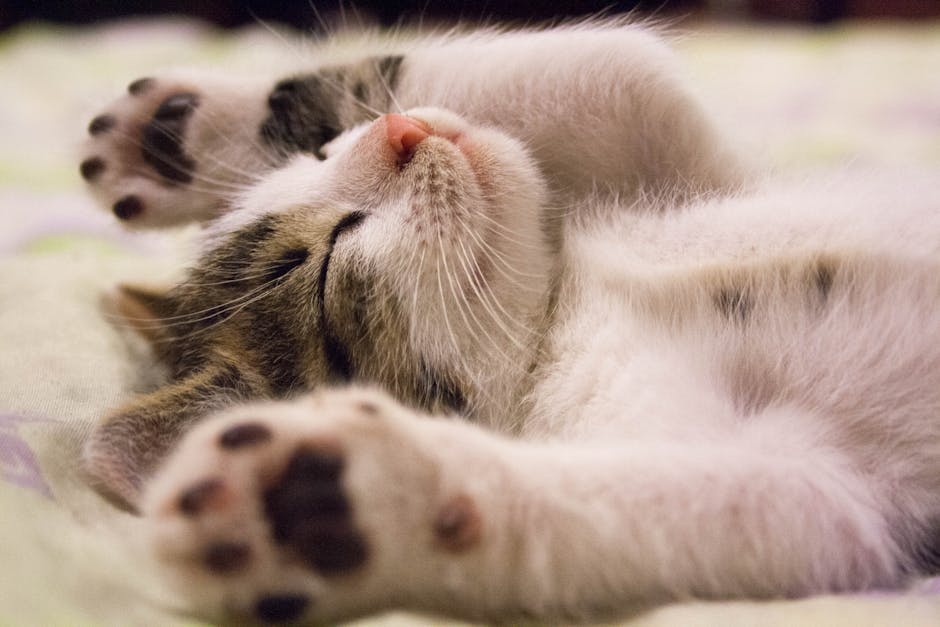
Emergency Fit’s Top 10 Tips for Better Sleep for Shift Workers
The Challenge of Good Sleep—And What You Can Do About It
Working shifts can be incredibly demanding, and one of the biggest challenges faced by shift workers is maintaining healthy sleep patterns. Whether you’re a paramedic, nurse, firefighter, or anyone working non-traditional hours, getting enough quality rest is crucial for your physical and mental wellbeing.
At Emergency Fit, we get it—shift work can mess with your sleep in ways most people don’t understand. That’s why we’ve pulled together our top ten, no-fluff sleep tips to help you rest easier and feel more human, no matter when you clock off.
1. Prioritise Your Sleep Schedule
As tempting as it might be to stay up after a night shift, sticking to a consistent sleep routine can significantly improve sleep quality and duration.1 Train your body to recognise when it’s time to wind down and rest, even if that’s during the day, by having a set time to go to bed and wake up. This can help regulate your circadian rhythm—your internal clock—making it easier to fall asleep when you need to.
2. Optimise Your Sleep Environment
Research indicates that environmental factors like temperature, light, and noise significantly impact sleep quality. This means that creating a sleep-friendly environment is crucial, especially for daytime sleepers.
To start, try to keep your bedroom cool—between 17-28°C is best.2 Next, use blackout curtains to block out any sunlight, as even small amounts of light can suppress the production of melatonin—your body’s sleep hormone.3 Finally, use earplugs to drown out daytime noises. Or better yet, try a white noise machine, as consistent background noise may help you fall asleep faster.
3. Use Caffeine Wisely
Caffeine can be a lifesaver during night shifts, but it’s essential to use it strategically. Caffeine has a half-life of approximately 5 hours in most adults.5 This means it’s wise to avoid caffeine intake in the last 4–6 hours of your shift to prevent it from interfering with your ability to fall asleep. Instead, hydrate with water and consider natural energy boosters like small snacks with protein and healthy fats to sustain you without disrupting your sleep.
4. Watch What You Eat
Your diet plays a significant role in how well you sleep. Avoid high-fat, greasy, or spicy foods before bed, as these can cause discomfort and indigestion, making it harder to fall asleep. Instead, opt for lighter, sleep-promoting foods like bananas, almonds, dairy, poultry, fish, or eggs. These foods are rich in tryptophan—an essential amino acid that the body uses to produce melatonin.
5. Develop a Relaxation Routine
Establishing a pre-sleep routine can signal to your body that it’s time to rest. Relaxation techniques like deep breathing, meditation, or gentle stretching can help you fall asleep faster and enjoy better quality rest.7 You might also try taking a warm shower or bath 1-2 hours before bed, as this can help to relax your muscles and lower your core body temperature, making it easier to drift off.
6. Limit Light Exposure Post-Shift
After a night shift, exposure to natural light can confuse your body into thinking it’s time to stay awake. This happens because light is the primary cue for your circadian rhythm. To help, try wearing blue-light blocking sunglasses on your way home to reduce light exposure. Also avoid screens—such as your phone, computer, and TV—once you’re home, as blue light from electronic devices can further delay melatonin production.
7. Use Naps Wisely
Research shows that brief naps during night shifts can improve alertness and performance, making them a great way to recharge.10 However, avoid napping too close to your bedtime, as they can make it harder to fall asleep later. Remember to also keep naps under 20-30 minutes to avoid sleep inertia—a groggy feeling that can follow longer naps.
8. Consider Sleep Aids Cautiously
If you’re struggling to sleep, natural sleep aids like melatonin may help you reset your circadian rhythm, but they should be used with caution. Speak with a healthcare professional before trying any over-the-counter sleep aids to ensure they’re safe and effective for your needs, especially if you’re working night shifts regularly.
9. Maintain Physical Activity
Physical activity is one of the best protectors against disrupted sleep among shift workers.11 However, timing is important. Studies show that intense workouts too close to bedtime may leave you feeling too energised to sleep, so try to engage in regular exercise as early as possible in the day.12 In particular, yoga, walking, or light strength training can help reduce stress, boost mood, and improve your ability to sleep when your body needs to.
10. Communicate Your Sleep Needs
It may sound simple, but talking to your family, housemates, or anyone sharing your living space about your sleep schedule can make a big difference. Let others know the times you’ll be resting so they can help minimise noise and interruptions. A simple “do not disturb” sign on your door can help set boundaries and ensure you get the rest you need, especially if you’re trying to sleep during unconventional hours.
Final Thoughts
At Emergency Fit, we know how critical it is to balance the demands of a high-stakes job with your wellbeing. Sleep is one of the most important ways to support your health and performance, so it’s worth making it a priority—even in the unpredictable world of shift work.
Small changes can make a big difference. A few tweaks to your routine can help you sleep better and feel sharper when it matters most. By incorporating these sleep tips into your routine, you’ll be well on your way to better rest and better performance, both on and off the job.
References
- Kecklund, G., & Axelsson, J. (2016). Health consequences of shift work and insufficient sleep. BMJ, 355, i5210.
- Caddick, Z. A., Gregory, K., Arsintescu, L., & Flynn-Evans, E. E. (2018). A review of the environmental parameters necessary for an optimal sleep environment. Building and Environment, 132, 11-20.
- Vartanian, G. V., Li, B. Y., Chervenak, A. P., Walch, O. J., Pack, W., Ala-Laurila, P., & Wong, K. Y. (2015). Melatonin suppression by light in humans is more sensitive than previously reported. Journal of Biological Rhythms, 30(4), 351-354.
- Messineo, L., Taranto-Montemurro, L., Sands, S. A., Oliveira Marques, M. D., Azabarzin, A., & Wellman, D. A. (2017). Broadband sound administration improves sleep onset latency in healthy subjects in a model of transient insomnia. Frontiers in Neurology, 8, 288775.
- Institute of Medicine. (2001). Caffeine for the sustainment of mental task performance. National Academies Press.
- Peuhkuri, K., Sihvola, N., & Korpela, R. (2012). Diet promotes sleep duration and quality. Nutrition Research, 32(5), 309-319.
- Neuendorf, R., Wahbeh, H., Chamine, I., Yu, J., Hutchison, K., & Oken, B. S. (2015). The effects of mind‐body interventions on sleep quality: A systematic review. Evidence‐Based Complementary and Alternative Medicine, 2015, 902708.
- Haghayegh, S., Khoshnevis, S., Smolensky, M. H., Diller, K. R., & Castriotta, R. J. (2019). Before-bedtime passive body heating by warm shower or bath to improve sleep: A systematic review and meta-analysis. Sleep Medicine Reviews, 46, 124-135.
- Chang, A. M., Aeschbach, D., Duffy, J. F., & Czeisler, C. A. (2015). Evening use of light-emitting eReaders negatively affects sleep, circadian timing, and next-morning alertness. Proceedings of the National Academy of Sciences, 112(4), 1232-1237.
- Ribeiro-Silva, F., Rotenberg, L., Soares, R. E., Pessanha, J., Ferreira, F. L., Oliveira, P., Silva-Costa, A., & Benedito-Silva, A. A. (2006). Sleep on the job partially compensates for sleep loss in night-shift nurses. Chronobiology International, 23(6), 1389-1399.
- Booker, L. A., Magee, M., Rajaratnam, S. M., Sletten, T. L., & Howard, M. E. (2018). Individual vulnerability to insomnia, excessive sleepiness and shift work disorder amongst healthcare shift workers. A systematic review. Sleep Medicine Reviews, 41, 220-233.
- Stutz, J., Eiholzer, R., & Spengler, C. M. (2019). Effects of evening exercise on sleep in healthy participants: A systematic review and meta-analysis. Sports Medicine, 49(2), 269-287.
